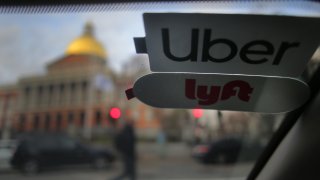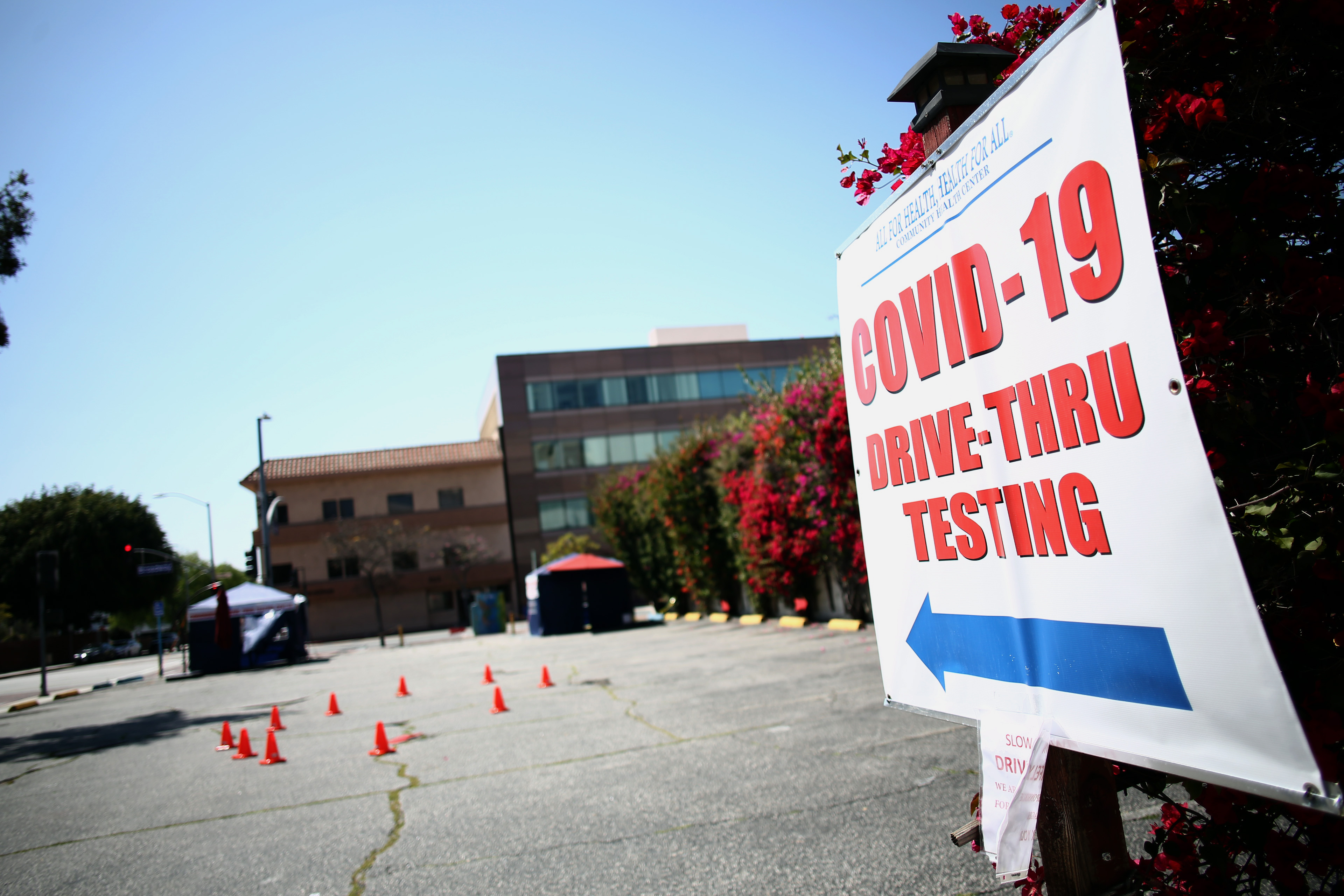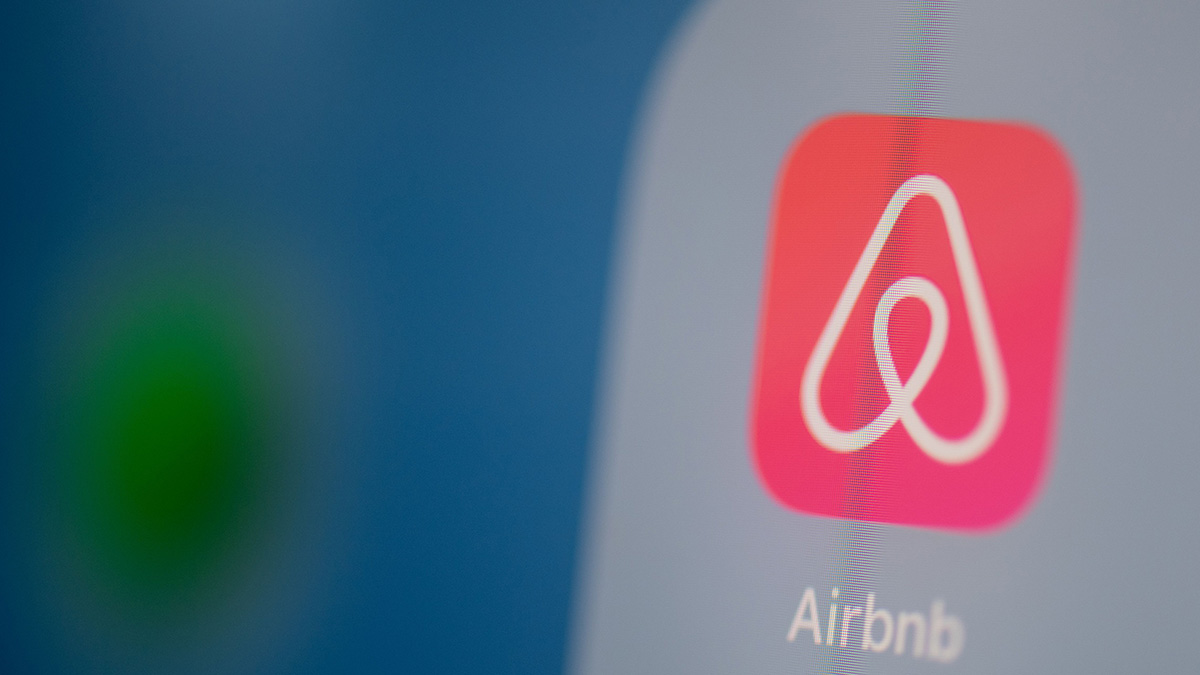
BOSTON, MA – NOVEMBER 14: Uber and Lyft stickers are pictured inside a ride share vehicle outside the Massachusetts State House in Boston on Nov. 14, 2019. Many drivers pick up fares for both companies. That boxy delivery truck blocking your lane is just one maddening manifestation of a public failure to adapt to the new convenience economy. The technology built around our desire for instant gratification – Uber and Lyft, DoorDash and Grubhub, the Amazon packages whizzing from distribution centers to our doorsteps – has become the source of huge amounts of new traffic. Hundreds of thousands of these trips would never have happened just a few years ago. But the public policy response has been no match for this challenge, the Globe Spotlight Team has found. In Boston, in fact, the operative policy only enables the offender. It is part of a pattern of delayed or passive public response to our slow-moving crisis in commuting. True, state officials were a nose ahead of the pack in imposing a surcharge on Uber and Lyft rides three years ago – an attempt at the time to make the companies pay their share of transportation costs – but now they have fallen out of the vanguard. Confronted by the powerful ride-share lobby on Beacon Hill, state leaders havent summoned the will or nerve to impose the kind of high fees and stringent limits other cities are using to try to curb the traffic. (Photo by Lane Turner/The Boston Globe via Getty Images)
California sued ride-hailing companies Uber and Lyft on Tuesday, alleging they misclassified their drivers as independent contractors under the state's new labor law.
Attorney General Xavier Becerra and the city attorneys of Los Angeles, San Diego and San Francisco announced the lawsuit Tuesday. The labor law, known as AB5 and considered the nation's strictest test, took effect Jan. 1 and makes it harder for companies to classify workers as independent contractors instead of employees who are entitled to minimum wage and benefits such as workers compensation.
California represents Uber and Lyft’s largest source of revenue. The companies, as well as Doordash, are funding a ballot initiative campaign to exclude their drivers from the law while giving new benefits such as health care coverage. The initiative is likely to qualify for the November ballot.
Uber said in a statement it would contest the lawsuit in court "while at the same time pushing to raise the standard of independent work for drivers in California, including with guaranteed minimum earnings and new benefits.”
“At a time when California’s economy is in crisis with 4 million people out of work, we need to make it easier, not harder, for people to quickly start earning,” the statement said.
Lyft, however, vowed to work with the attorney general and other officials to "bring all the benefits of California’s innovation economy to as many workers as possible, especially during this time when the creation of good jobs with access to affordable health care and other benefits is more important than ever.”
Becerra highlighted the coronavirus pandemic during Tuesday's virtual news conference, saying if drivers contract the virus or lose their jobs as a result they won't have access to health care coverage and other worker protections.
“They're the ones who would have to worry about how they'll pay their bills, what they'll do in the future, how they'll survive moving forward economically,” Becerra said.
Jerome Gage, a Los Angeles Lyft driver, said in a statement that drivers haven't been given personal protective equipment during the pandemic.
“I am terrified of getting sick as passengers cough and sneeze in my car constantly. Uber and Lyft have abandoned drivers and passengers by failing to provide personal protective equipment,” said Gage, who is also a leader of the Mobile Workers Alliance, a group of Southern California drivers urging the state to enforce the labor law against Uber and Lyft. “I am unable to stay home. If I don’t drive, I have no income. I have no choice. If I don’t risk my health, I won’t have money to eat and pay my bills.”
A federal judge in February denied Uber and Postmates' request for a preliminary injunction that would have exempted them from the law. But separately, a federal judge in January indefinitely blocked the law from applying to more than 70,000 independent truckers, deciding that it is preempted by federal rules on interstate commerce.
A state judge, however, ruled in February that Instacart, a grocery delivery company, is likely misclassifying some of its workers as independent contractors instead of employees and flouting the labor law.
The state Legislature is also considering amending the law, though lawmakers are split whether to broaden or narrow it as other groups — such as freelance writers and photographers — contend they have been hurt by it through unintended consequences.
The state's lawsuit, filed in San Francisco, alleges that Uber and Lyft haven't paid enough payroll taxes as a result of the misclassification. The suit seeks restitution for unpaid wages owed to drivers, civil penalties and a permanent ruling that would prohibit the companies from misclassifying drivers in the future.
New Jersey’s labor department filed a $640 million tax assessment last year against Uber, saying the company misclassified its drivers.




